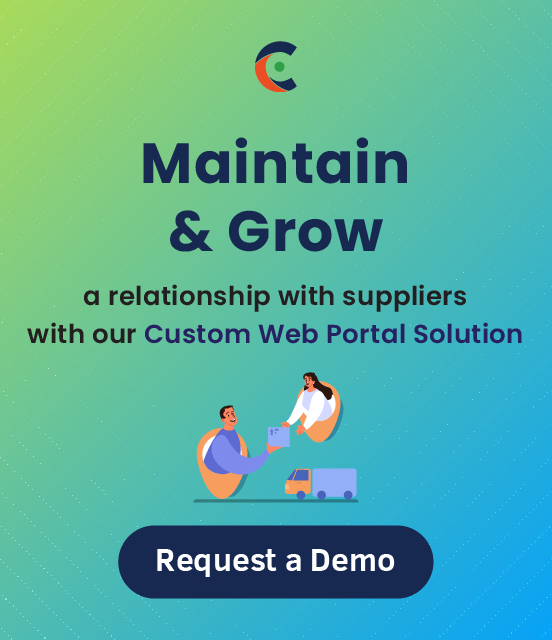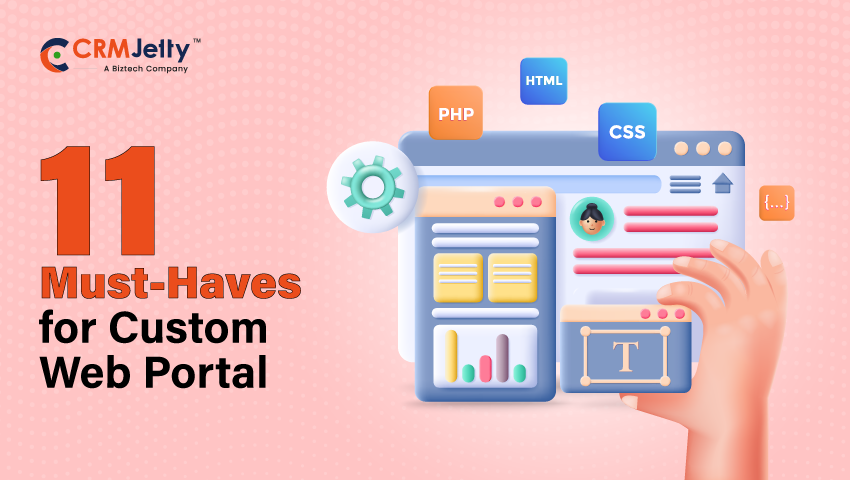The finance industry, like others, is undergoing a drastic change as they move towards digitalization. The emergence of non-bank startups is changing the competition, forcing everyone to rethink their ways. As data breaches and privacy concerns are intensifying, regulatory laws and compliance are becoming stricter. Besides, customer expectations are taking a turn, too, as they expect personalized services.
On top of that, the pandemic is speeding up the transformation towards digital solutions. The transition from legacy to digital won’t be easy. However, financial institutions can tackle these and other challenges by technology that causes these disruptions. That means the finance industry needs to embrace digital transformation to tackle the challenges and thrive.
Let’s look into how a finance portal solution can solve your business challenges.
Challenges and How Portal Helps
Compromised Security
Security is the leading challenge of the banking sector. Due to the sensitive nature of the data, the number of cybercrimes always remains high. And now, due to the pandemic, as online transactions and remote work are increasing, the risk is higher.
Remote work has increased the data breach cost in the US by $137,000. And thus, finance institutions should adopt the latest technology-driven security measures to keep customers’ data secure, such as:
- User authentication to ensure no unauthorized user can access the data.
- End-to-end encryption so that transactions are secure.
- Two-factor verification, location-based authentication, etc.
Adopting a finance portal solution means no compromised security. It provides security-specific features such as verification and authentication. Besides, you get role-based access which means portal users can access the data but only the data they have access to. Every user is assigned a role, and based on that role, they are assigned access.
For example, customers may have access to check their bank details and transactions. Branch officials can access all the customers of their branch only while the admin can access everyone, including staff and customers.
Increasing Competition
Small companies utilize technology to provide financial services to the customers, setting the bar higher for established institutions. According to a PwC Global FinTech Survey, fintech companies embracing technology will take over legacy businesses within five years. To stay in the competition, they need to bring in innovative solutions that customers are expecting. This is the major challenge that traditional approach-based businesses are facing.
These new transformations force finance institutes to partner or merge with other fintech companies to fill the gap. To gain a competitive edge, traditional banks and credit unions need to embrace technology. They need to understand that this era is about instant results and smart management.
As a solution, I would suggest developing a finance portal. Understanding the complexity of financial services, a finance portal provides unique features for admin, customers, and accountants based on their roles. For example, an admin can manage all employees and customers, view the reports, and make quick decisions. Instead of spending time on redundant billing procedures, accountants can manage the balance sheets from the portal itself. Customers can track their EMIs and pay online.
Rising Expectations
Humans of the 21st century are smart and tech-savvy. They know better about tech solutions and their opportunities, such as self-service, instant solutions, shopping on the go, mobile transactions, etc.
They expect this high level of personalization and convenience from the banking sector. With each new generation, the expectations of digitalized experience become more innate.
Baby boomers and Gen X, for example, prefer visiting physical bank locations. Millennials, when surveyed, were found to make up the largest percentage of mobile banking users at 47 percent. With this, banks can expect that Gen Z will be more invested in the omnichannel experience. This raises the question: how can they satisfy both old and young generation users?
The answer is implementing a hybrid model. For basic queries, users can use the finance portal solution. They can access a knowledge base to find relevant information. If they require assistance, they can schedule an appointment through the portal or even communicate via it. Banks and credit unions can integrate AI chatbots with live chat support features into their portal.
Legal Formalities
Digital transformation is escalating regulations in the finance industry, making them spend a large portion of their budget on compliances. The new regulations are focusing more on improved supervision and enforcement. Traditional businesses are finding it difficult as it’s forcing them to keep up with updates, customer expectations, and industry regulations. As technology is rapidly advancing, they have to meet new challenges. For instance, the 2021 regulation challenges include data security and new mandates around debt control practices. To refine customer engagement and meet regulatory compliances, the banking and finance sector need to implement new strategies that involve technology.
Businesses can collect and mine data, perform in-depth analysis, and create insightful reports to identify and reduce compliance risk with a finance portal solution. A portal can also help standardize the procedures, ensuring organizations keep up with new regulations/standards.
Customer Retention
Even after embracing technology, many banks and credit unions fail to retain customers. There are two reasons for it – either the solution is outdated, or businesses don’t understand their customer requirements.
An outdated solution means a lack of features and complex UI. Customers expect businesses to offer a personalized experience with an intuitive UI that makes financial processes convenient. This is why you need a finance portal solution.
A finance portal with a separate login space offers customers personalized service. They can customize the portal appearance for themselves, handle their transactions, loans, EMIs, etc. They don’t have to call or visit banks to know about their loan status. Moreover, they can choose what content they want to read. Round-the-clock service with a pool of information and community support helps optimize interaction and increase customer satisfaction. This kind of superior service helps build customer loyalty.
Chatbot and AI together can help you deliver personalization. With AI, you can learn customer behavior and recommend services they might be interested in. In short, it’s about understanding customers and offering them what they prefer.
Continuous Innovation
We often think that having an online presence is enough to reach the target audience and enhance the customer experience. Well, the truth is an online presence like a website or mobile app is simply the first step towards digitalization or business success.
To thrive, businesses need to innovate, and that innovation comes through insights, which is the result of constant interaction. As a business owner, you need to interact with customers and staff to know their expectations and challenges. Apart from this, you need to stay updated with the latest trends and technologies too. You can’t keep going with that outdated transaction system where users have to add in the account details. Qr code, virtual IDs are the trend, and you need to ensure that your portal offers customers these transaction methods.
Every customer is unique. You need to ensure that you meet everyone’s expectations. For example, your portal should be responsive and offer an omnichannel experience. It should be convenient for desktop and mobile users to access your finance portal solution.
What More Does Portal Offer?
Features like data sync, real-time communication, document management, audit services, etc.
The general purpose of a finance portal solution is to streamline the financial services, i.e., make management of users and money easier and efficient. By allowing admin to manage employees and accountants and their day-to-day activities, it helps create transparency. It also bridges the knowledge gap by keeping customers and everyone involved in the agreements, loans, transactions, etc. If a customer needs assistance, a live-chat feature ensures they won’t return disappointed.
Employees in the banking and financial services industry spend most of their time on manual reporting. Hence, a finance portal solution offers advanced reporting, balance sheet management, and real-time data sync to save time. To avoid misplacing documents and physical verification, you get a document management feature, where you can upload digital documents and proceed with the verification with e-signatures. It helps salespeople to achieve their targets with less stress.
A finance portal for customers means they don’t have to visit physical offices. They don’t have to remember their EMI dates. Yeah, that’s a bit unfair to intelligent human brains, but it works! Most importantly, customers can access and get their bank work done while sitting in their office/home.
Overall, you can say that portals are the saviors that speed up your business efficiency and productivity.
Now, if you’re looking for another savior to help you develop one, here we are!
The team at CRMJetty has industry-wide portal knowledge. We have experience with different technologies such as Salesforce, Dynamics, SugarCRM, SuiteCRM, WordPress, etc. We have helped various businesses from different industries and likewise can help you develop a custom finance portal solution.
All product and company names are trademarks™, registered® or copyright© trademarks of their respective holders. Use of them does not imply any affiliation with or endorsement by them.








